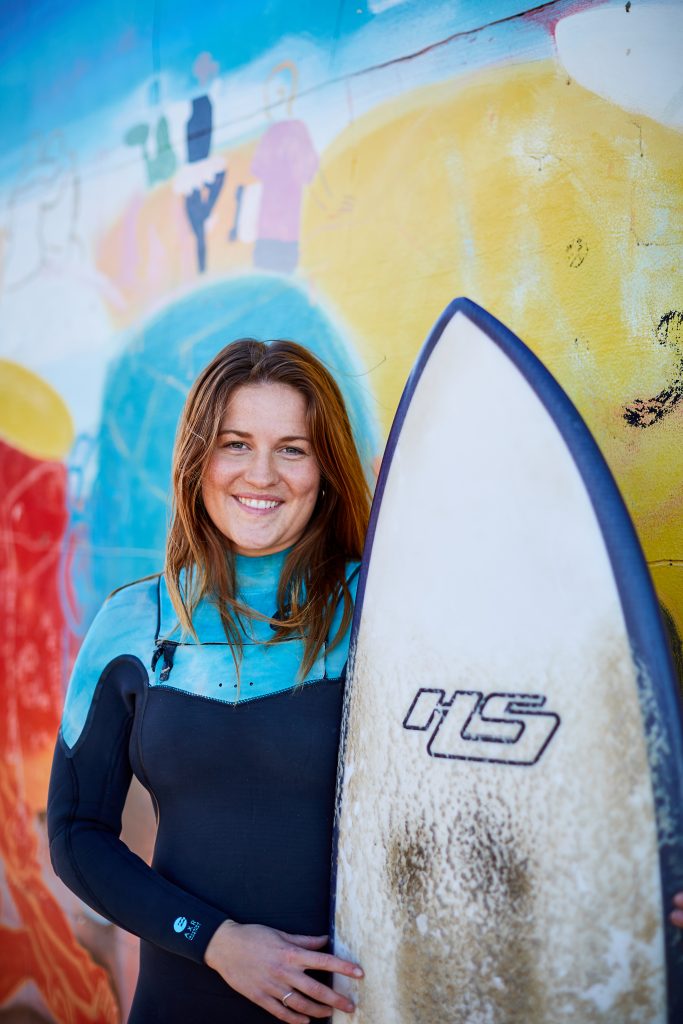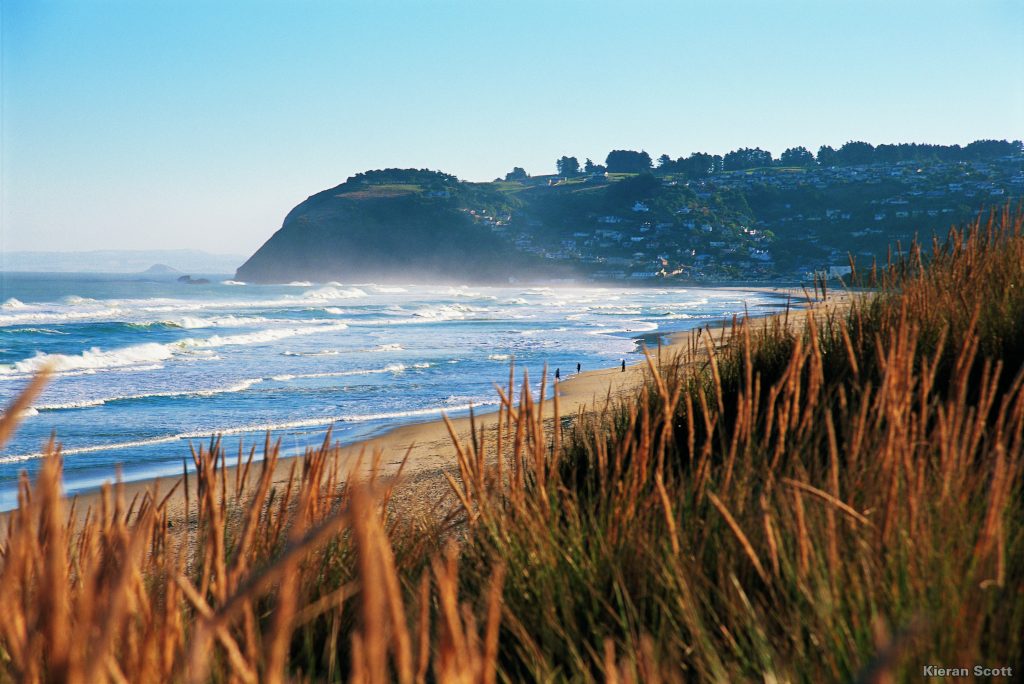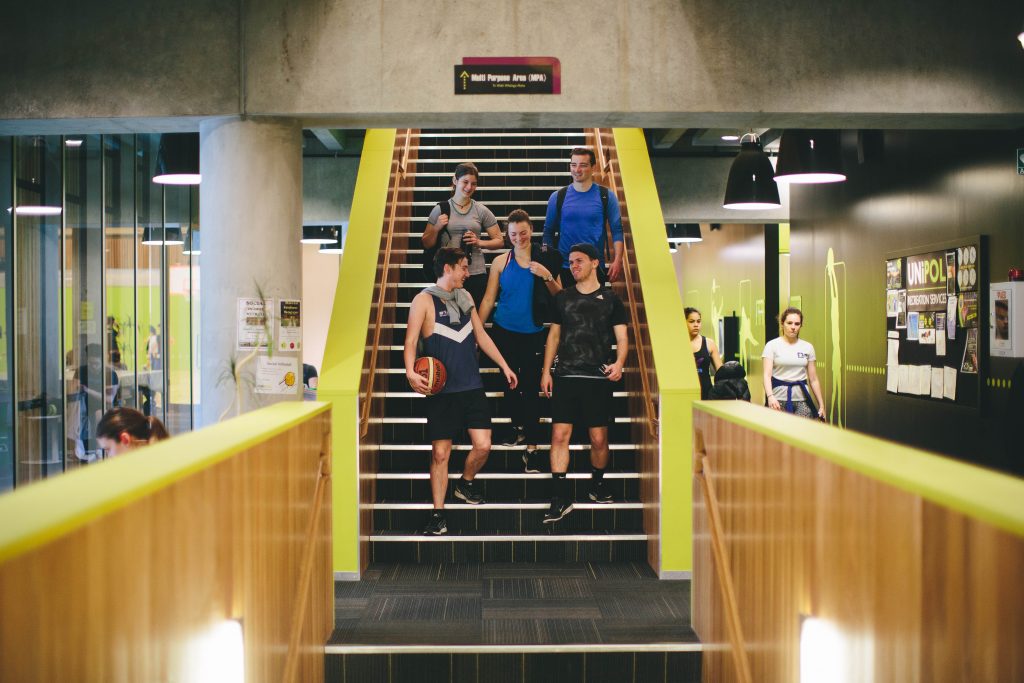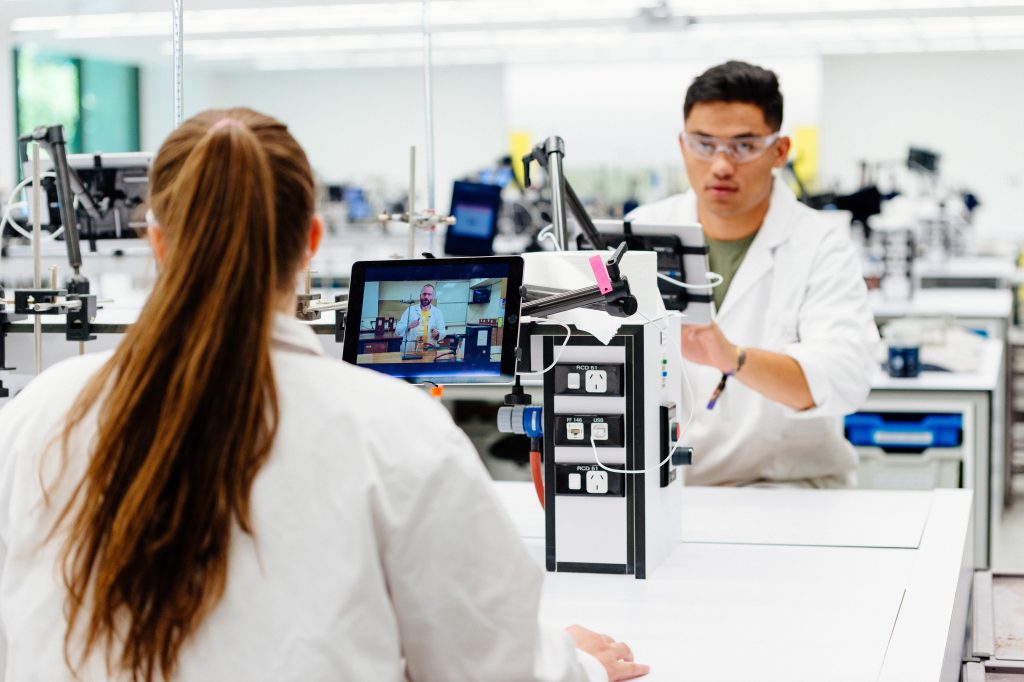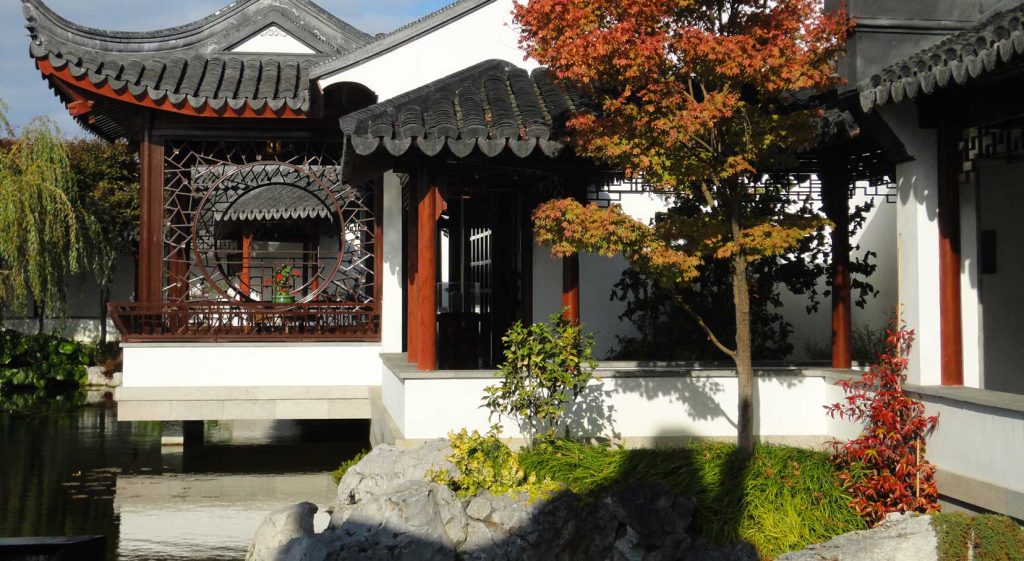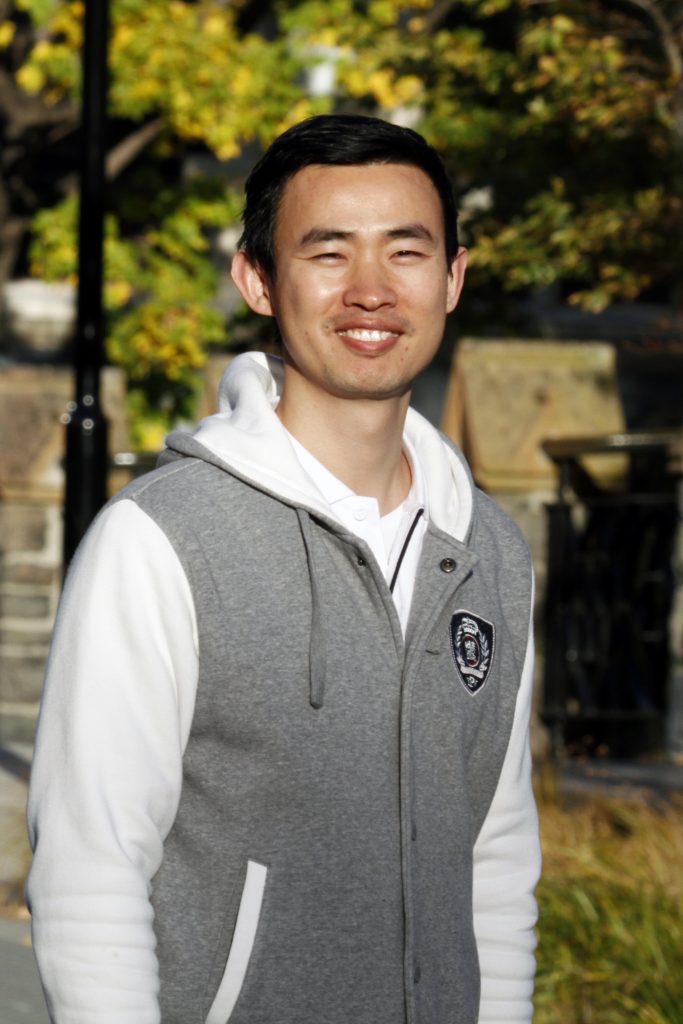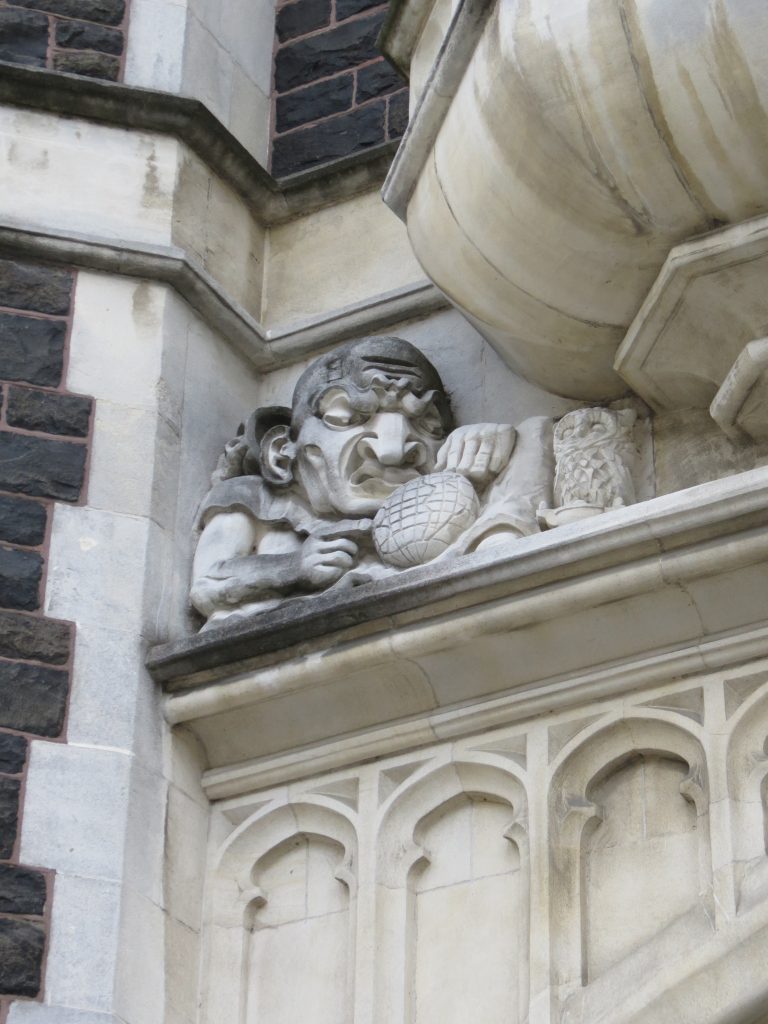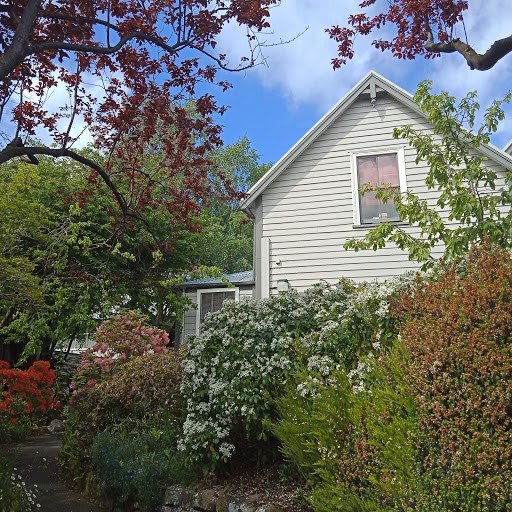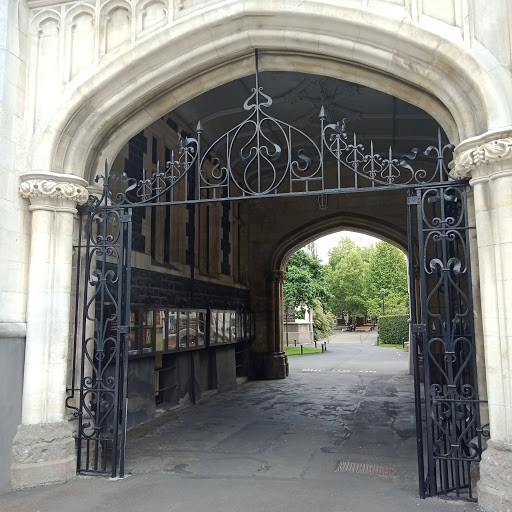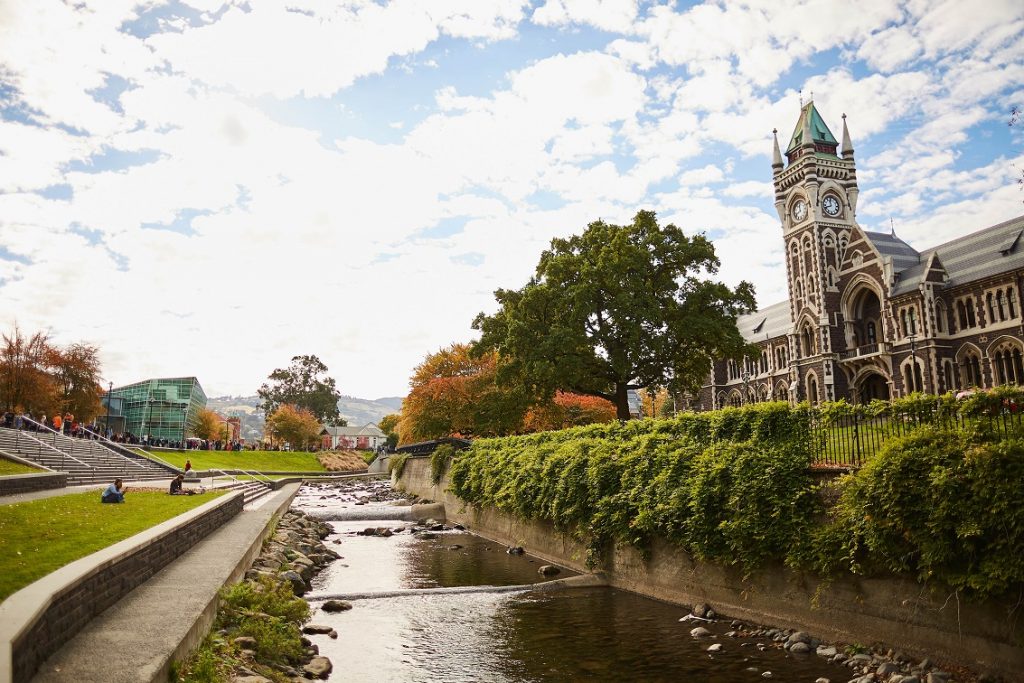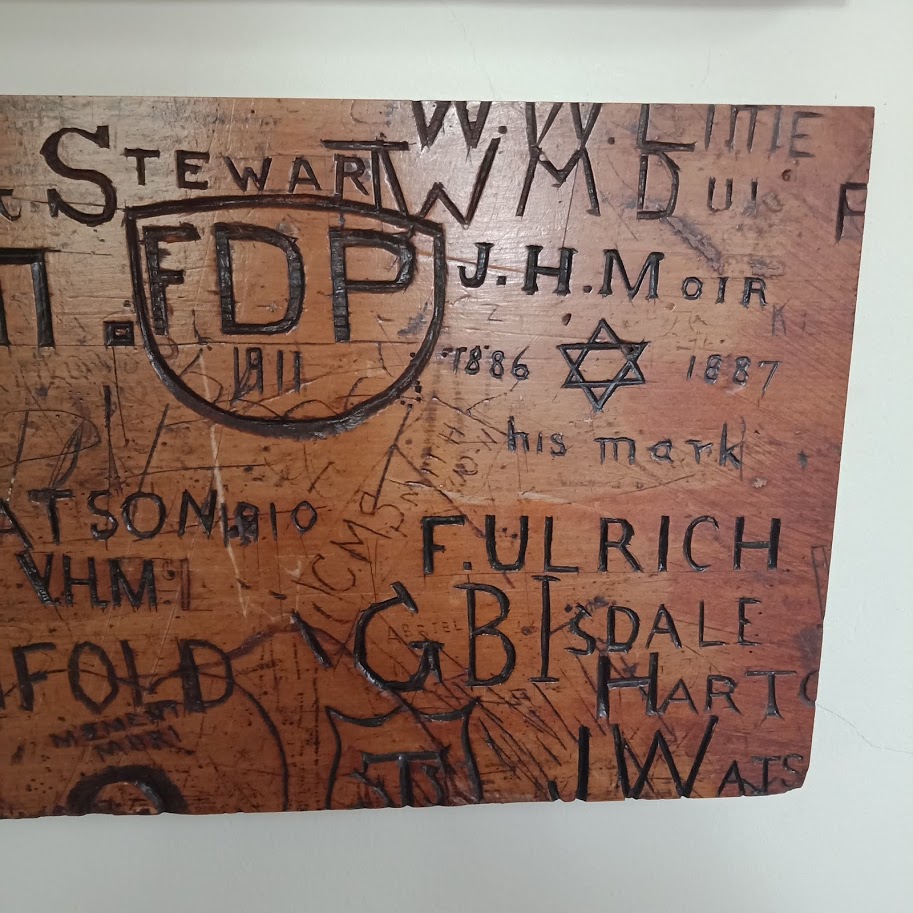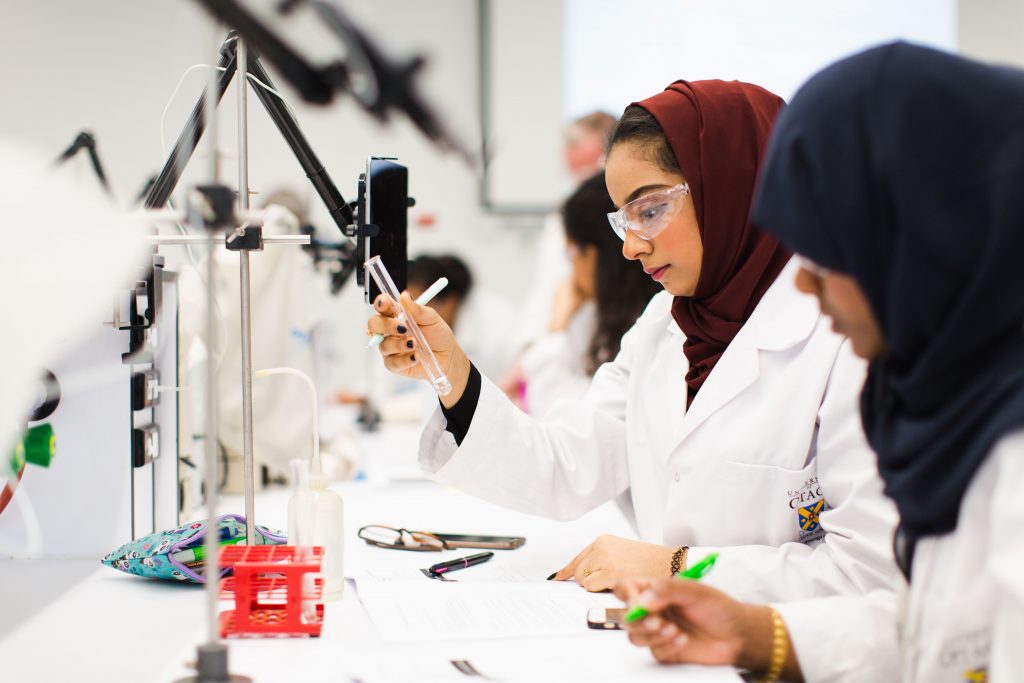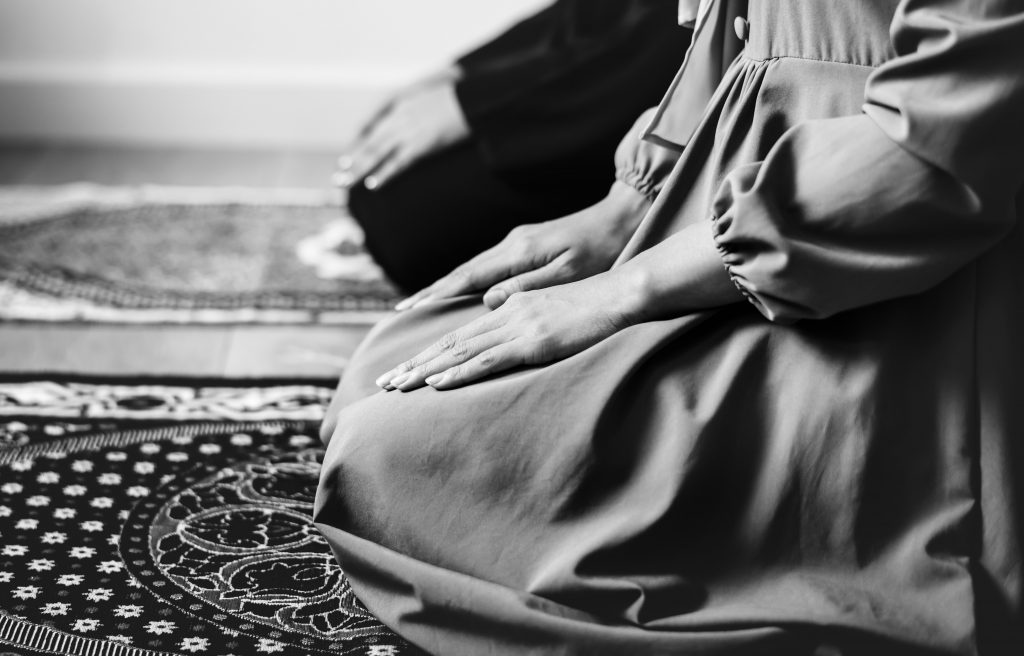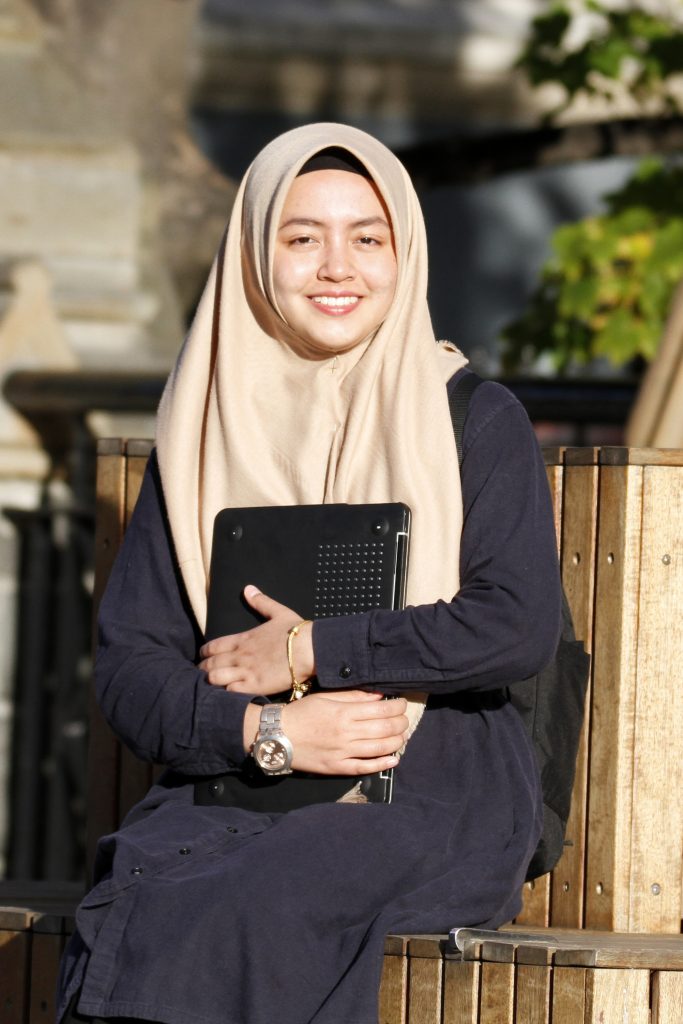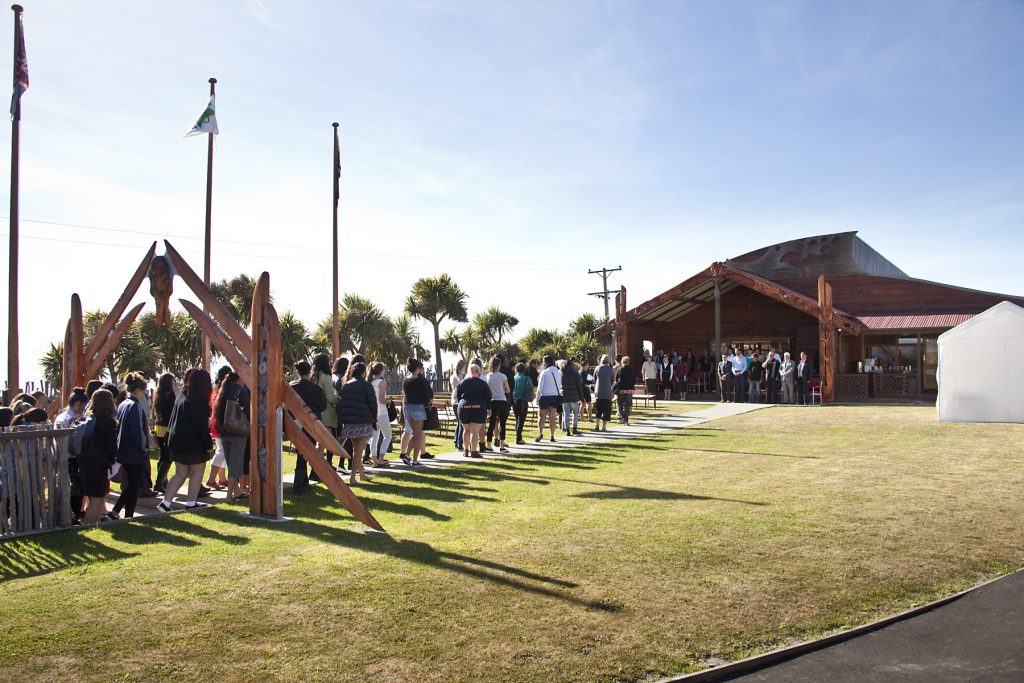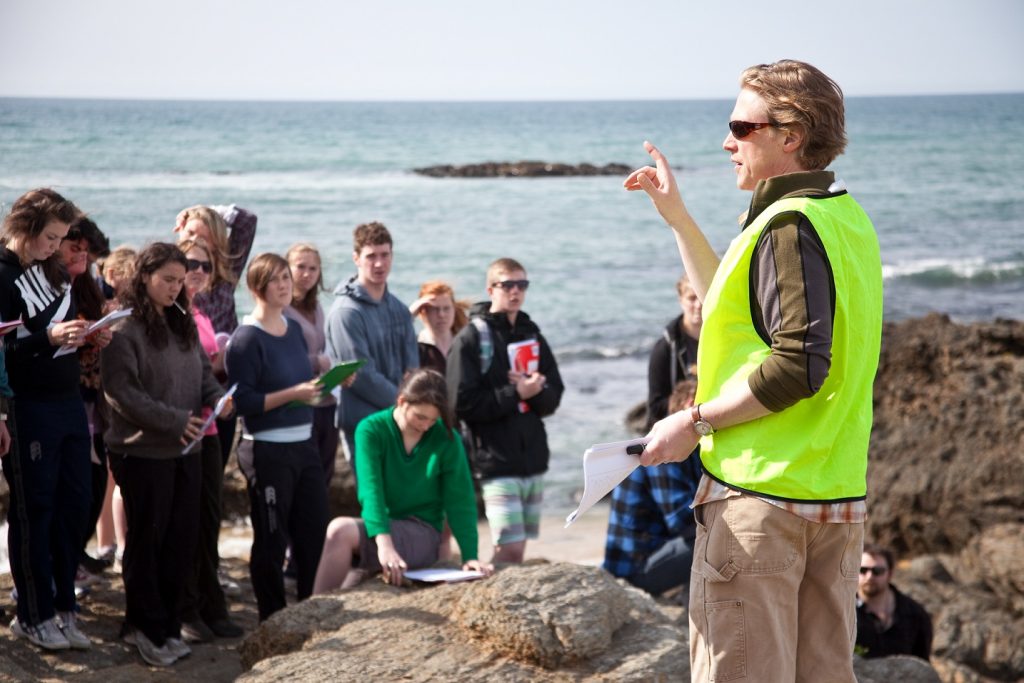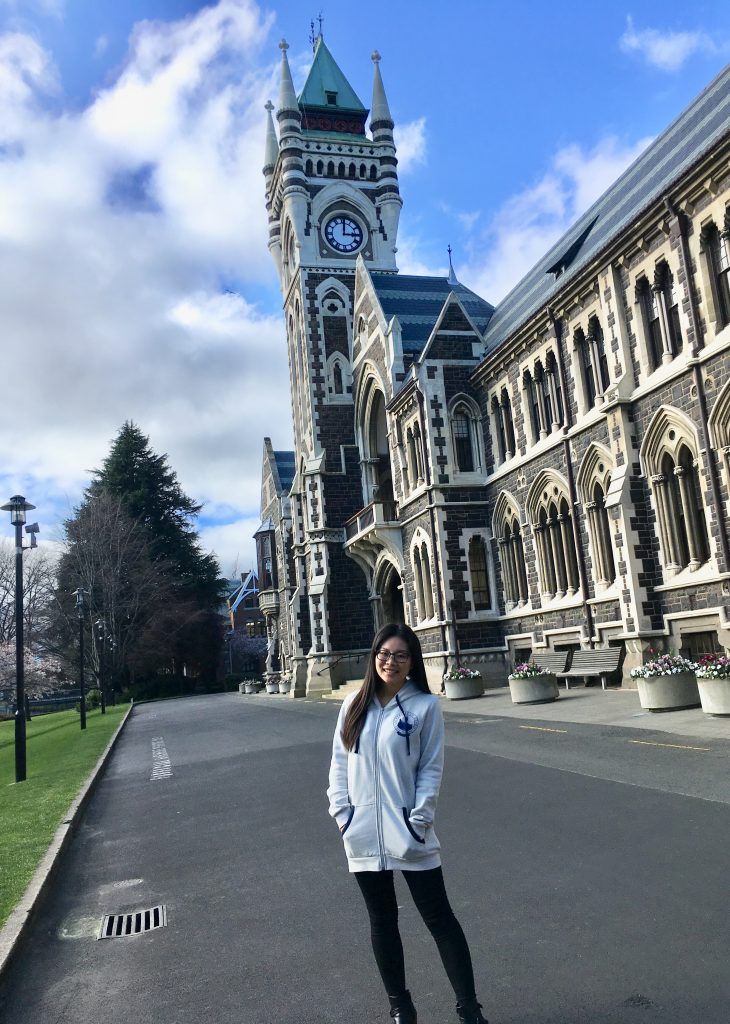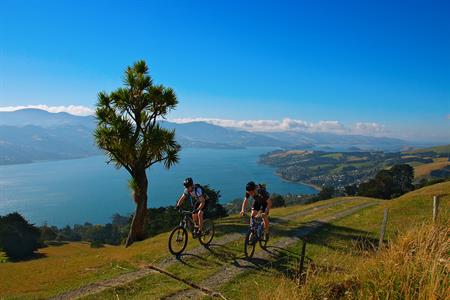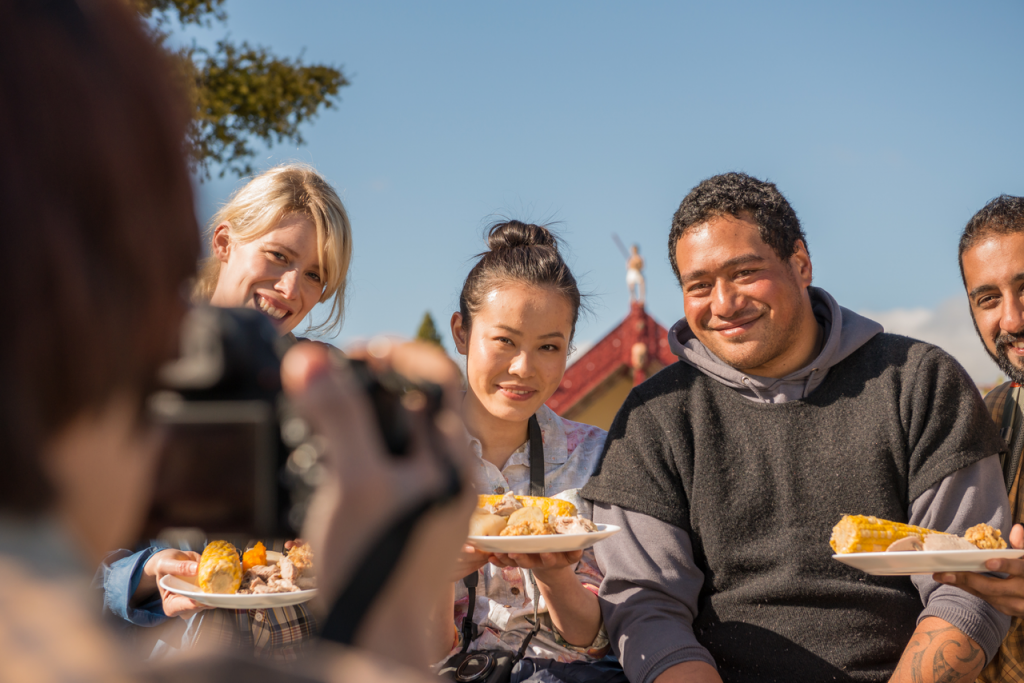Surfing…….just another reason to come to Otago.
We hear lots of reasons why students choose to come to study and live in our little city at the bottom of the world; our world class rankings and reputation, our friendly and welcoming atmosphere and our drop dead gorgeous environment. Choosing to come to study at the University of Otago for the surf is not a reason we’ve come across before, but it is exactly what led Celine Clausen from Norway to our doorstep.
Surfing
Celine is a passionate surfer, so her criteria when looking to study abroad was to find a world class university in a city that also provided her with incredible surfing opportunities. She found two options; Sydney or Dunedin, and she chose us, but she was completely unprepared for the reality of what she found when she arrived here.
Incredible environment
“I have been completely overwhelmed by the incredible lifestyle offered here and the natural beauty of the surrounding environment. I knew there would be good waves but I had no idea that I would be paddling in the ocean alongside seals, sea-lions and penguins!”
Proximity
The close proximity of the university and Dunedin as a whole was also something she was unaware of.
“I live super close to campus and the city centre, and I’m surrounded by students and good times. Only 15 minutes away there are beautiful beaches, nature and wildlife. Everything is so close. It’s also easy to travel around the South Island from Dunedin and explore more of what New Zealand has to offer.
Kiwis are so friendly
The friendly student culture at Otago is another factor that has made Celine’s time here an enjoyable one and she has found it easy to transition as an international student.
“Kiwis are the friendliest and most helpful people I’ve ever met and the University of Otago is no exception – I feel so welcome here. Campus is beautiful and lots of fun – all the students live super close and students account for a large part of the population of Dunedin – internationals live beside locals – I can guarantee you’ll have a blast!”
Class size
And it’s not only the natural environment that has made an impact on her, the learning environment has encouraged Celine to delve further into her learning experience.
“Having smaller classes here at Otago makes me really feel like I belong and am a part of the class – it also makes it easier and less intimidating to ask questions and really get to know the lecturers.”
And this relationship with students and lecturers alike has made Celine feel she is not just a number lost in the crowd.
“I have a really good relationship with my lecturers and I appreciate that they know my name and who I am. I feel they all want me to perform to the very best of my abilities and that they are happy to teach me and share their knowledge.”
We loved having you here Celine, and we hope that the memories and the friendships you made here will stay with you for a lifetime. Thanks for the photos, your thoughts and keep living the dream of surfing your way around the world!
If you are an international student and you would like to know more about studying at Otago, following the enquiry link below.
Nicky Richardson is an International Marketing Coordinator at the University of Otago. With degrees in music and marketing, she is a recent graduate of Otago herself – she loves Otago so much she ended up getting a job here!
Career Success – what does it mean to you?
When you make the decision to study towards a degree or diploma you are setting yourself a goal to strive towards – but what happens when you reach that goal? You have your qualification, so what next? How do you shape your career into what you want it to be?
We caught up with Yvonne Gaut from the University of Otago Career Development Centre to discuss this and she has put forward two simple and wise tips that can help you get where you want to go.
Choice
“When we make choices about our careers, we are making choices that will have implications for our work, our learning, our families and our communities”.
Tristram is one of my favourite career professors and I follow his work as he publishes and presents around the world. He investigates how various aspects of your identity, position in society and background will impact on your chance of career success.
Goal = Success
This is a good time to pause and consider what career success means to you. If you don’t know what that is, then you won’t know if you can achieve it. Once you have an idea of career success this can then be a goal. When you have a goal you are able to develop a strategy to work toward.
Take time to dream
#Tip 1. Take some time to dream, talk or draw about what career success will look like to you. It’s a useful idea to have a career journal either a paper one or within a device. Someplace that you can keep a record of your reflections and can return to whenever you feel the need.
How your career develops is not just an outcome of your choices, personality or your course. How the society in which you live is structure and how other people treat you, all have an impact.
Identify barriers
#Tip 2. Identify some of your future barriers. Considering what might hold you back from achieving your goals enables you to work on them before they leave you powerless.
Careers development works at the interface between the individual and society, between self and opportunity, as well between aspiration and realism.
Ask for help
Make use of the career service while it is freely available to you. If you are not sure what you need to ask, talking with a career development adviser can help to clarify your thoughts around your career and provide some ways to consider your future goals.
You can make a time to talk with a career development adviser through OtagoCareerHub or directly contact yvonne.gaut@otago.ac.nz
Career Development Centre – Te Pokapū Umanga | University of Otago – Te Whare Wananga o Otago
IS Building, Albany Street, PO Box 56, DUNEDIN
Being Chinese in Dunedin – not as foreign as you think.
Coming to live and study in Dunedin from China may initially seem like a total cultural and geographical shock, but Chinese people coming to Dunedin in the 21st century are following in the steps of their forefathers. Dunedin has a long history and a growing connection with China and this is the focus of today’s blog.
The Gold Rush
The first Chinese miners began arriving in the 1860’s to the Otago Goldfields. The gold rush had already hit Arrowtown when these early miners started to arrive, but by 1876 more than 4000 miners were carefully picking over previously abandoned prospects.
Early immigrants came from the Pearl River delta area in Guangdong province. Most (67%) were from Panyu county; the rest were from Siyi, Zengcheng, Dongguan and Zhongshan. These counties are located near the city of Guangzhou formerly known as Canton.
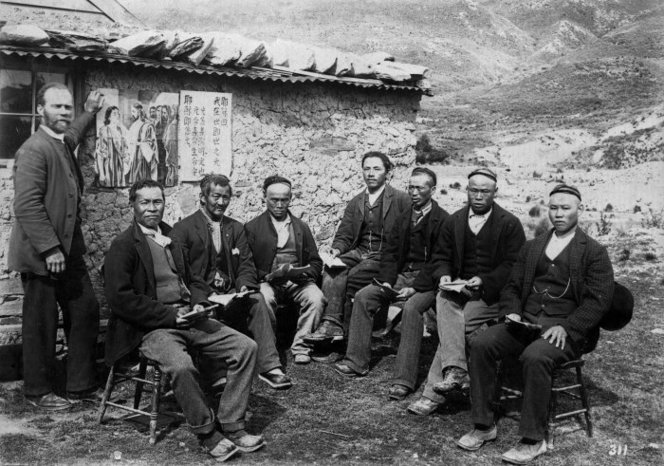
Chinese gold miners, with Mr Last in the middle, and Reverend Alexander Don on the far left, at the Kyeburn diggings circa 1900. Image courtesy of Te Puna Mātauranga o Aotearoa – National Library of New Zealand
Dunedin Chamber of Commerce
The Otago Goldfields attracted the first group of organised Chinese migrant workers. The Dunedin Chamber of Commerce (now the Otago Chamber of Commerce) recruited the workers when European miners left Otago to try their luck in the newly discovered West Coast goldfields. By late 1869, over 2,000 Chinese men had come to the land they would call the ‘New Gold Mountain.’
Many Chinese miners lived away from their European neighbours, without their families (who remained home in China) in extremely small, cramped and tiny cottages – no doubt a harsh existence during the freezing cold winters and scorching hot summers that Central Otago is renowned for. For more information on early Chinese migrants visit Te Ara – The Encyclopedia of New Zealand.
A fresh start
Immigration rules in New Zealand became more liberal in 1987, and new waves of Chinese migrants once again came to ‘New Gold Mountain,’ as their ancestors named New Zealand. Chinese migrants brought diverse skills and languages, and rich culture and traditions such as the lion dance and the lantern festival.
When the goldfields had been exhausted, many Chinese miners came to Dunedin to establish and run some of Otago’s early businesses. Their ancestors still call Dunedin home today.
A tale of two cities
In part due to the strong influence of Chinese in Otago’s history, the involvement of the local Chinese population and the wish to establish trusted business and trade opportunities Dunedin became sister city to Shanghai in October 1994.
The relationship is a driver behind Project Shanghai, a partnership of Dunedin businesses, educational institutions, the Otago Chamber of Commerce and the Dunedin City Council which aims to develop a broad range of links between the two cities.
A Dunedin Shanghai Association formed shortly after the relationship was formalised. The Association plays a key role in introducing and facilitating business, cultural, education and sports links between Dunedin groups and their Shanghai counterparts. It also hosts and facilitates a wide range of visitors and delegations from Shanghai. This role is reciprocated by the City of Shanghai in terms of visits to Shanghai by Dunedin delegations.
The Dunedin Chinese Garden
Once the sister city bonds had been formally recognised, talk began in 1998 of creating an authentic, traditional Chinese garden in Dunedin to recognise the contributions of the first Chinese people who came to Otago during the 1860’s and contributed so much both in commerce and culture over the years.
The Dunedin Chinese Garden’s design and construction was supervised and influenced by an architect from the Shanghai Construction and Decoration Company and the Shanghai Museum.
The Garden was pre-fabricated and assembled in Shanghai on a site identical in size and shape to that in Dunedin, then dismantled and transported here where it was reconstructed by artisans and supervisors from Shanghai.
The Dunedin Chinese Garden was blessed in June 2008, in the presence of Prime Minister Helen Clark and Chinese ambassador Zhang Yuanyuan and opened to the public on 8 June 2008. Prime Minister Clark returned to officially open the garden in September 2008.
Studying at the University of Otago
So, whilst the connections between China and Dunedin are historical and current, I am not Chinese – therefore I cannot give my perception on what it is like to live and study in Dunedin as a Chinese student at the University of Otago.
We caught up with Mike (Huang) Junjing who is here studying for a Bachelor of Physiotherapy (BPhty) to get his perspective as a Chinese student studying at the University of Otago and this video tells his story.
Take it away Mike…….
NB: The introduction is spoken in Chinese with Chinese subtitles, but the rest of the video is spoken in English with Chinese subtitles.
Nicky Richardson is an International Marketing Coordinator at the University of Otago. With degrees in music and marketing, she is a recent graduate of Otago herself – she loves Otago so much she ended up getting a job here!
5 things you might not know about the University of Otago….
As we rapidly approach 2019 and the University of Otago’s 150th birthday celebrations, it seems like a good opportunity to delve into the archives to find out some not so commonly known pieces of information about the university. I have asked around and here are 5 hidden gems that you might not know about the University of Otago.
Gargoyles or Grotesques?
Perched high above the Archway (which was once the formal entrance to the University) are a series of grotesques, each representing the various branches of learning available at the university at the time. They have been named gargoyles but the distinction lies between the fact that a gargoyle functions as a water spout to divert rain from the buildings, whereas a grotesque is purely decorative and involves either fanciful animal and human forms often distorted to be ugly and absurd.
Rumour has it that the grotesques were modelled on academic staff of the time……but that has never been confirmed. The man responsible for these unique little design elements was Edmund Anscombe (1874-1948), the university’s architect from around 1909 to 1929. While Fletcher Brothers won the tender to construct the Archway with a price of £10,292, the stonemason who carved the grotesques is unknown.
Otago’s oldest building
When you look at our gorgeous campus it is easy to assume that the oldest buildings are the old stone buildings in the centre of campus, but as the university expanded over time it began to acquire neighbouring properties which ranged from tiny cottages to larger homes.
Some were demolished, but some still survive, including what is widely deemed to hold the title of ‘oldest building on campus.’ Mellor House, one of the old Union Street houses which is now home to the Department of Psychology was originally built in 1862 for Thomas Calcutt, a printer who migrated from England to Otago in 1858.
Cry me a river……of tears
These beautiful black gates were originally the main entrance to the campus, as the entire campus was once contained within the ‘Quad’ which you can see immediately beyond the archway.
This stone corridor houses display boxes on the left which now contain information about events around the university, but their original purpose was for the public display of exam results. Hundreds would gather to view their results and many a tear was shed when the marks were not positive, hence the archway being coined ‘The Corridor of Tears’ or the ‘Tunnel of Tears.’
The archway links the Allen Hall building (completed 1914, it was originally the Students’ Union) to the former School of Mines building (completed 1909, which is currently home to the International Office and where I am writing this blog). The entire group of buildings was designed by Edmund Anscombe the architect for the majority of the University buildings from 1909 to 1927.
The original site of the Dunedin Botanic Gardens
The Water of Leith which runs through the university campus is not always this tranquil, and this was certainly the case when in February 1868 floods washed away bridges, and about an acre of gardens – at this point in history this site was home to the Dunedin Botanic Garden. This saw the Botanic Garden moved further north to their current site, and the university was able to purchase the land and develop it in the 1870’s. Some of the trees in front of the clocktower are indeed older than the buildings themselves as they are a reminder of the original inhabitants of this site.
Students have always pushed the boundaries
Each generation that passes seems to muse on the fact that the younger generations are less respectful, more verbal and opinionated and more willing to push the boundaries, but it appears that students, or indeed the younger generation have always held this inclination.
The image above was taken from the desktops of the oldest lecture theatres on campus – in both Geology and the clocktower. As you can see from the dates, some of this is very old indeed, with J.H. (John Harpur) Moir making his mark in 1886-1887. Mr Harpur graduated with a B.A in 1890 and became headmaster of Dunedin’s Normal School.
The full installation, complete with plaque now features on the south wall of the council chambers in the clocktower building, and it really is a remarkable and historical sight to see, some of the graffiti is embedded so deeply into the wood, it must have taken hours!
Nicky Richardson is an International Marketing Coordinator at the University of Otago. With degrees in music and marketing, she is a recent graduate of Otago herself – she loves Otago so much she ended up getting a job here!
Fit in, or stand out? A Muslim perspective on life at Otago University
How do students that choose to live their lives in the Muslim faith feel when they come to the University of Otago? Do they stand out from the crowd? Are their beliefs and practices respected and catered for? Well, that is a question I cannot answer as I am not a Muslim. But I have met Muslim students working here and I have an increasing interest in the way that they choose to lead their lives. Today we launch our international video taken from the perspective of a Muslim student studying at Otago – so, what is it like?
My day is just like yours
These quotes were taken from anonymous Muslim writers in an article titled ‘What is it like to be a Muslim Student at Otago University’ and published by Critic in August 2016:
“As a Muslim student at Otago, my day is just like yours. This is because not all Muslims come in the same packaging. There are over a billion of us worldwide and each is an individual. Islam is the religion I was born into and have grown up with. For me, it is not something I consciously think about but the values that come with being Muslim are now so deeply ingrained within my identity that they are second nature. It is something I carry with me in my interaction with other students, with the University itself and the general public.”
Diverse staff and students
I think that the point made that “not all Muslims come in the same packaging” is something we non-Muslims need to remember. Don’t judge a book by its cover, and especially don’t judge a way of life that you have no understanding of. Reading through the articles written and the conversations had, it is clear that Muslim students predominantly feel welcomed and accepted.
“If anything, I’m overwhelmed with how accepting and open-minded all of the staff and students are here. One of the first things that I noticed when I moved here was how diverse the student body appeared to be and how nobody seemed to care about what anyone else was doing. This is one of my favourite things about this place.”
No barriers to practising beliefs
The University has two prayer rooms with one space exclusively for the Islamic community; it faces Mecca and is split into two rooms by a curtain. This is to adhere to Islamic rules on prayer with the opposite gender. Halal Food is readily available in local supermarkets and there are Halal restaurants in Dunedin. And if you’re wondering about connecting with other Muslim students when you come to Otago there is a range of established groups like the OMSA (Otago Malaysian Students’ Association), the Otago Muslim Association, and the MUSA (University of Otago Muslim University Students’ Association).
Studying at Otago – a Muslim Perspective
As for the question ‘fit in, or stand out?’ I think you’ll find that at Otago the choice is yours…..Muslim, or not.
But once again, as eluded to in the beginning of this blog post, I am not a Muslim, so therefore I cannot tell you what life as a Muslim at Otago is like.
But this lovely, smart and inspiring young woman – Arina Aizal can, and she does so, so beautifully in our latest video……….take it away Arina……..
Nicky Richardson is an International Marketing Coordinator at the University of Otago. With degrees in music and marketing, she is a recent graduate of Otago herself – she loves Otago so much she ended up getting a job here!
Studying Overseas – when in Rome, do as the Romans do.
The benefits of studying abroad are many and varied and include: Broadening your mind in regards to your perspectives on life – at the end of the day we only know what we have been told and experienced. Enabling you to be truly independent and resilient as travelling from home means you have few possessions and creature comforts. You will learn different styles of teaching and learning and if you embrace all the opportunities that you are given you may find that you grow and develop in ways that you just wouldn’t staying in your home country.
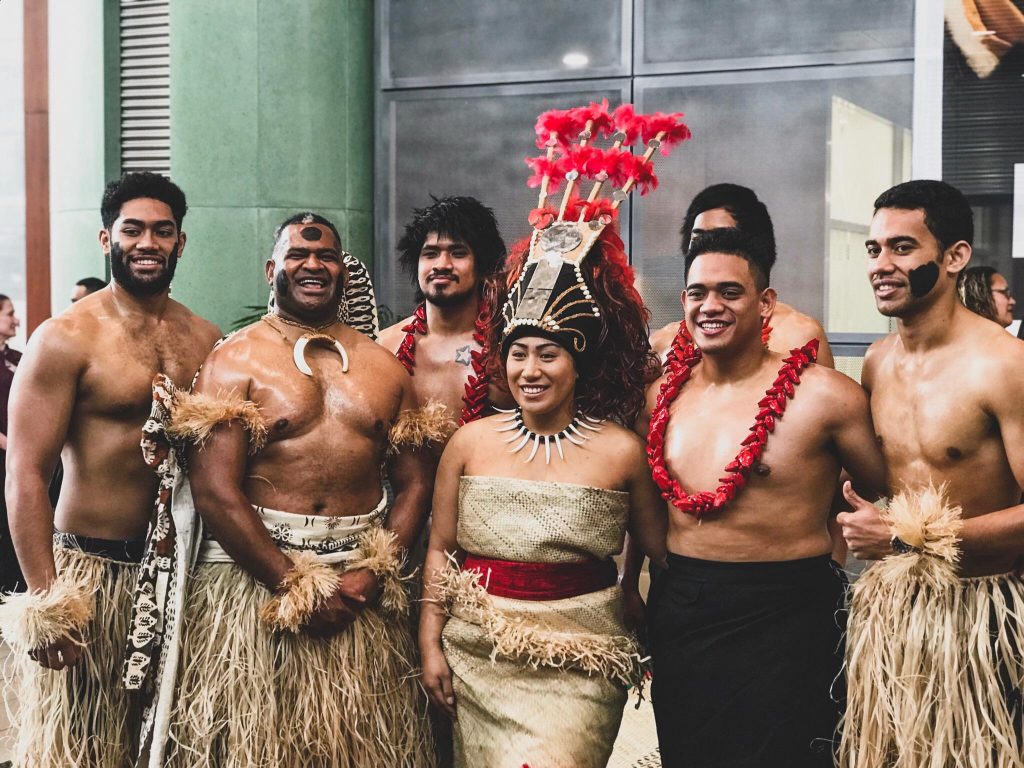
A group of Pacific Island students and staff performing a traditional ‘Ava Ceremony at the University of Otago.
When in Rome
Speaking of the opportunities given to you, this is a common thread in discussions with students who have travelled and studied abroad – take every chance to try new experiences, taste new foods, learn, especially when it comes to local customs and cultures. Be open to learn not only from an academic point of view, but from a humanitarian point of view. Learning how other cultures view the world that we live in can not only be enriching but can also help you navigate your way around your new found study destination.
Study your new surroundings
The University of Otago offers a selection of papers that are purely New Zealand and Pacific in their focus. Whether you are interested in learning about Māori or Pacific societies or you fancy learning more about the geological processes that shaped New Zealand, or you’ve seen our films and want to understand more about why New Zealand Cinema has its own distinctive style, there are so many options to choose from.
Papers on offer
We have compiled a list of New Zealand and Pacific focused papers that you can take whilst studying at Otago University and we couldn’t urge you more to ‘just do it,’ you have nothing to lose and everything to gain, when in New Zealand, do as New Zealanders do!
“Experience, travel – these are an education in themselves.”
―
Nicky Richardson is an International Marketing Coordinator at the University of Otago. With degrees in music and marketing, she is a recent graduate of Otago herself – she loves Otago so much she ended up getting a job here!
Where are they now? 5 questions and answers with an Otago alumni.
There is no shortage of information on what universities can offer prospective international students in regards to programme choice, entrance requirements, accommodation and lifestyle, but once you have reached your goal and walked the stage to receive your hard earned degree or diploma, what next? Life doesn’t end when your course ends, it is just the beginning! We decided to catch up with University of Otago alumni Joyce Zhang to find out where she is, what she is doing, and her thoughts on what it is like to be an international student studying at Otago.
What did you study and why?
I studied English at the University of Otago Language Centre and Foundation Year UOLCFY and then studied telecommunication (Postgraduate Diploma in Science) in information science department which is on the ninth, tenth and eleventh floors of the Otago Business School building. It was the same major as my Bachelor degree, everyone in my bachelor class in China pursued a higher degree as we believe it will lead to better employability. I thought ‘why not improve my English along with a higher qualification’ so I decided to go overseas.
Where are you now?
I am working as a China Representative for the University of Otago and I am based in Guangzhou, China. I look after student recruitment and partnership engagement in the China market for the Otago University International Office (which I am very proud of – it is a dream for me to work for my university 😊).

Joyce Zhang pictured here with Regional Marketing Manager for China, Dan Prain at an Education NZ Fair in Beijing, China last month.
Fondest memory of Otago
My fondest memory of Otago was my international friendships – you never lose them even though you’re not in the same country. A Japanese girl I met in Language Centre helped me a lot to improve my oral English so I achieved IELTS 7 in speaking after only 1 month of my arrival in NZ. A Korean girl with a working holiday visa invited me to visit her in Seoul two years ago, and we went to Shanghai Disneyland this March. I also met a nice couple from Denmark who studied as exchange students and we visited the Dunedin Chinese Garden and went skiing together. I am so proud of all these friendships and value them as treasures in my life… I know that I will never forget them and that they will never forget me and we keep in touch on social media.
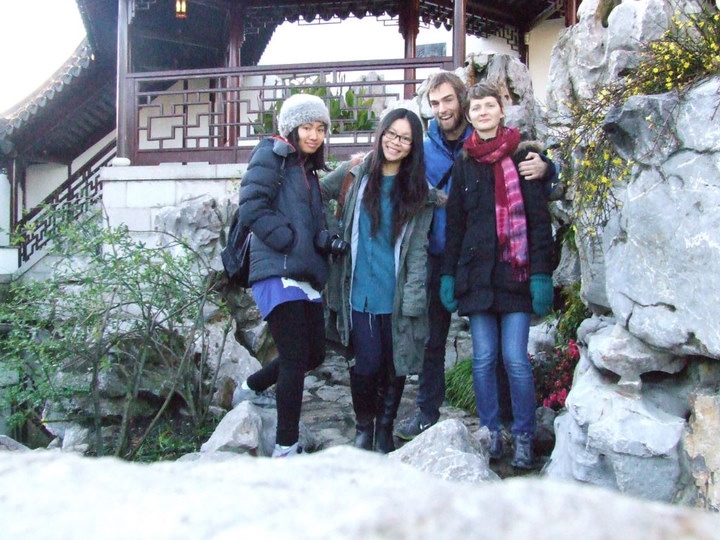
Joyce Zhang (pictured second from the left) at the Dunedin Chinese Garden with other postgraduate students she met and made friendships with whilst studying at Otago.
What advice would you provide for incoming international students about Otago?
Make friends and experience as much as you can. You might worry about your English, safety about travelling and all sorts of stuff, but please don’t stop exploring. Join in peer programmes, language exchange programmes, mentee and mentor programmes. There are many kinds of useful programmes designed for international students that will give you real engagement and help you become a true Otago student.
And just because we like to keep things a little bit light hearted, we thought we would throw in a random question…….
If you were on a deserted island and could only bring three things, what would you bring and why?
Hmmm water, food and… a boyfriend??!! Even if I was isolated, I can still be alive and enjoy every min as long as I can! 😊
If you want to maximise your employment opportunities with further study, want to improve your English speaking and make life long friendships, be like Joyce and find out more about studying at Otago!
Nicky Richardson is an International Marketing Coordinator at the University of Otago. With degrees in music and marketing, she is a recent graduate of Otago herself – she loves Otago so much she ended up getting a job here!
5 reasons why studying in NZ is a smart choice!
On a previous blog this month we discussed the 5 main reasons we believe Dunedin is an awesome place to be, but now we’re looking a little bit wider and we want to talk about our top 5 reasons that make New Zealand a great place to study and get qualified!
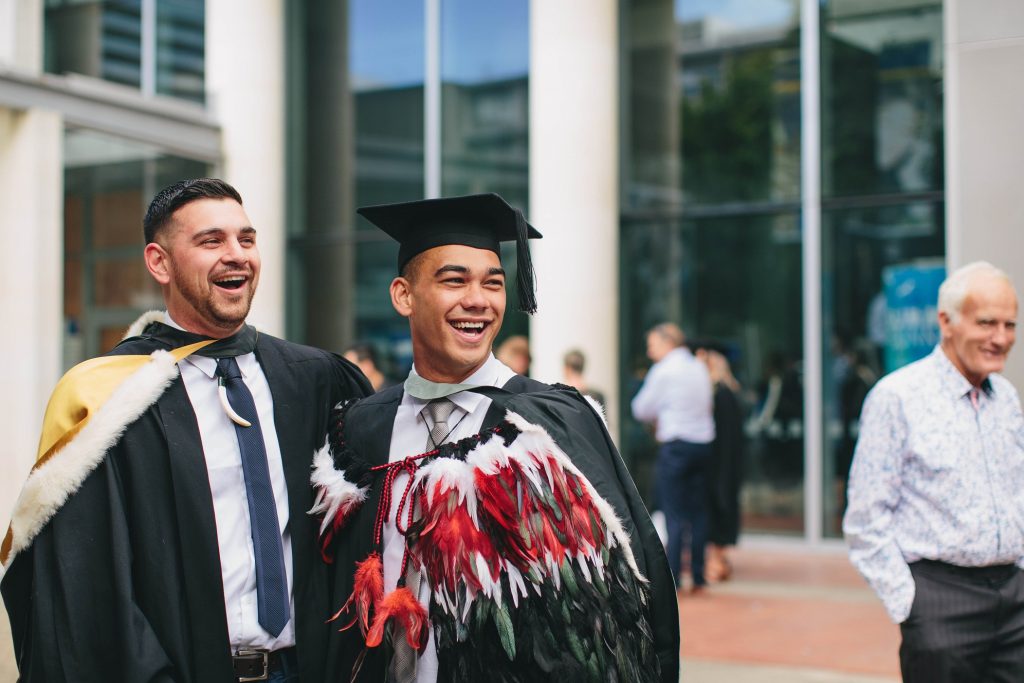
An Otago degree opens doors around the world, and graduation day is a day that Otago likes to celebrate.
When you choose New Zealand as your study destination you’re making a smart choice because you will receive a world-class education, and don’t just take our word for it! All eight of New Zealand’s universities including the University of Otago are in the top 3% in the world. Something that sets us apart here at Otago is the personalised and practical approach to learning and teaching. Students get hands on experience from research led teaching so the information they are receiving is the very latest, studying at Otago means you are always on the edge of what is known and what is being discovered. The other major point to make is that New Zealand university qualifications are recognised and respected globally meaning it can open career pathways and doors for you around the world.
New Zealand is insanely beautiful. Like, yes……RIDICULOUS…. The Lord of the Rings was filmed here. Need I say more. Of course, we still have some larger cities that aren’t quite as pristine, but you needn’t travel far geographically in New Zealand to find yourself in a picture book paradise. And alongside this, is the opportunity to get into the outdoors and experience a lifestyle that is truly freedom. And we aren’t all just paddocks and flocks of sheep, yes, you will definitely find that here, but we have become a lot more sophisticated over the last decade or so and developed our own unique New Zealand sense of café culture, art, food and fashion.
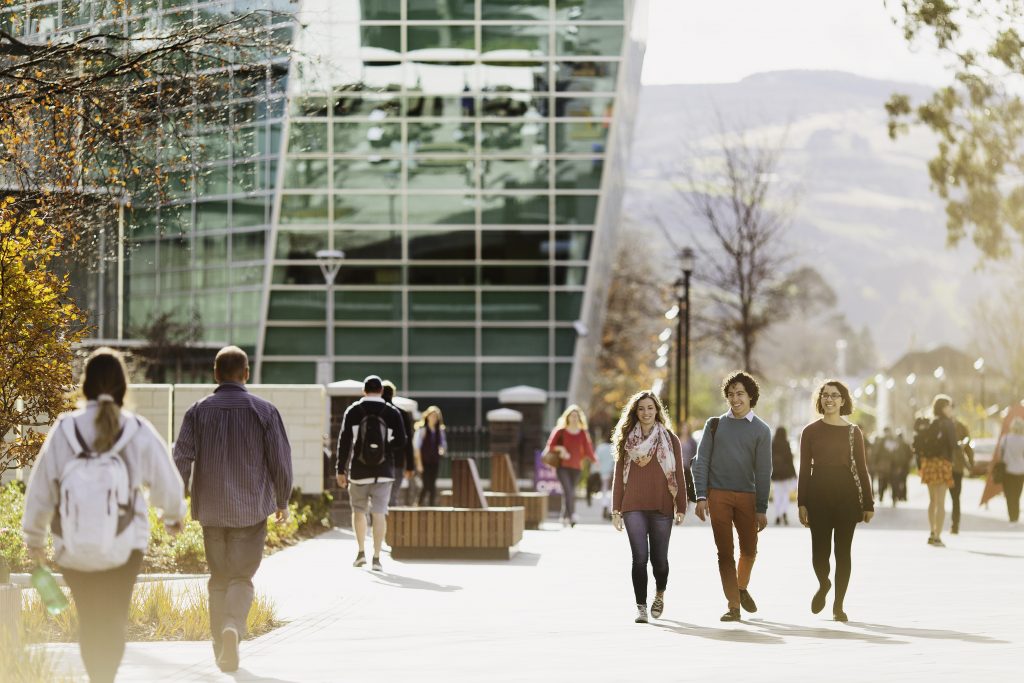
Students feel safe, with a sense of personal freedom as they walk around the Otago University campus.
We have always been a very safe country. In fact, we are the world’s second most peaceful country (Global Peace Index, 2017). And the concept of safety if you are a born and bred New Zealander is just something that we have taken for granted. We are used to feeling safe, and up until the digital age we were probably somewhat blissfully ignorant that many parts of the world are going through, and have been living in turmoil through war and unrest. So the decision to bring yourself to the other side of the world means you want to know that you are not coming into danger.
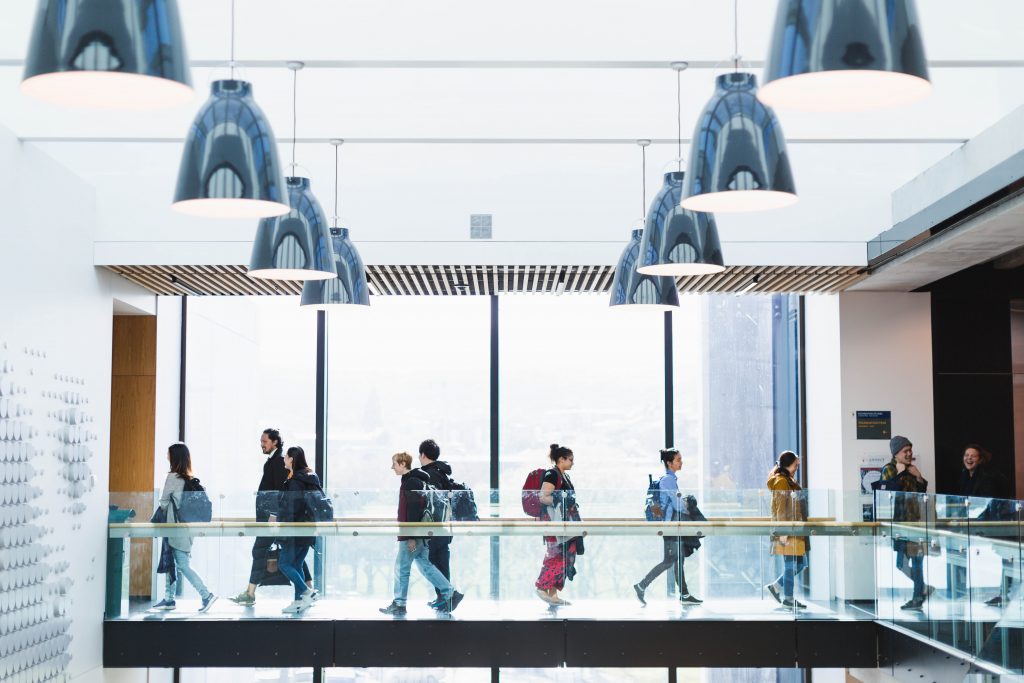
Lower cost of living and a perception that you are getting good value for money is a recurrent theme amongst international students.
Money! Having interviewed countless international students on their motivations to come and study at Otago University, it is clear for many that money and perceived value for money is a very important part of the decision making process. The international student recruitment market is a highly competitive one, and when it comes to cost New Zealand has lower living costs than many other countries. Also if you are a PhD student thinking of coming to study in New Zealand you will pay the same amount of fees as a domestic New Zealand student. Plus, if you choose to study in New Zealand there are opportunities for you to not only study, but work part-time as well.
We are generally a friendly bunch of people. Well, certainly down here in the South Island (Te Waipounamu). If you’re an international student it may seem strange that we say hello, Kia ora, smile or generally engage when we are out and about on campus, but that’s just what we do here. International students are always surprised by this friendliness, and once they feel confident enough to start saying ‘Kia ora’ which roughly translates to ‘good health to you’ in Māori, one of our three official languages, smile and start engaging, life will definitely start opening up. If you’re thinking about studying overseas consider these factors and get in touch if you’d like to know more.
Nicky Richardson is an International Marketing Coordinator at the University of Otago. With degrees in music and marketing, she is a recent graduate of Otago herself – she loves Otago so much she ended up getting a job here!

